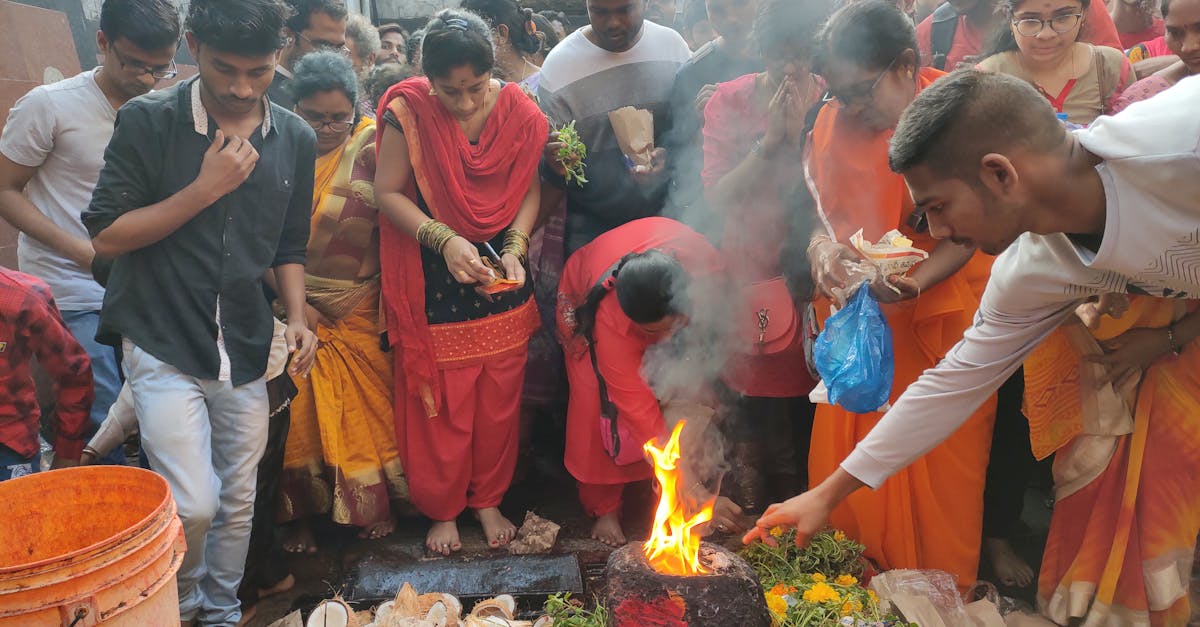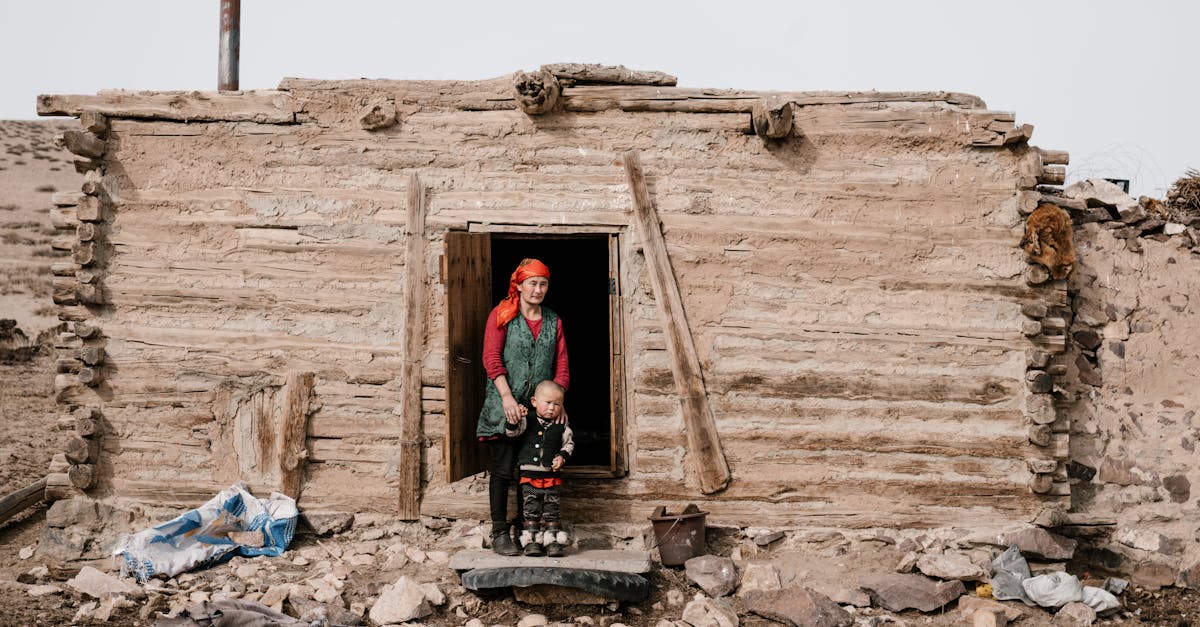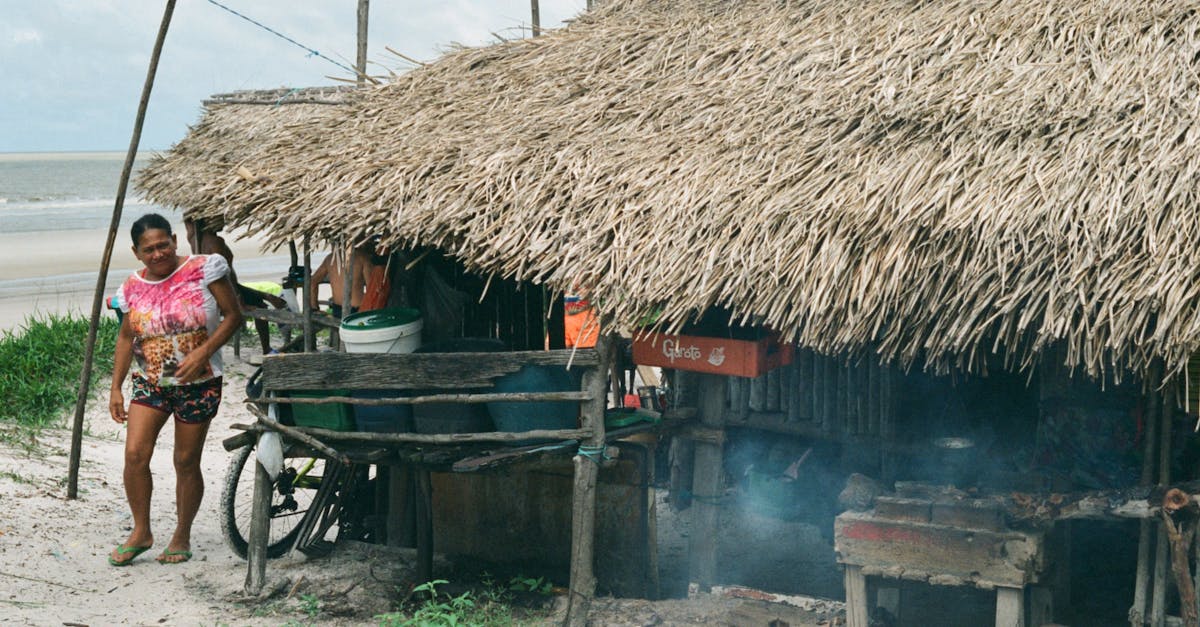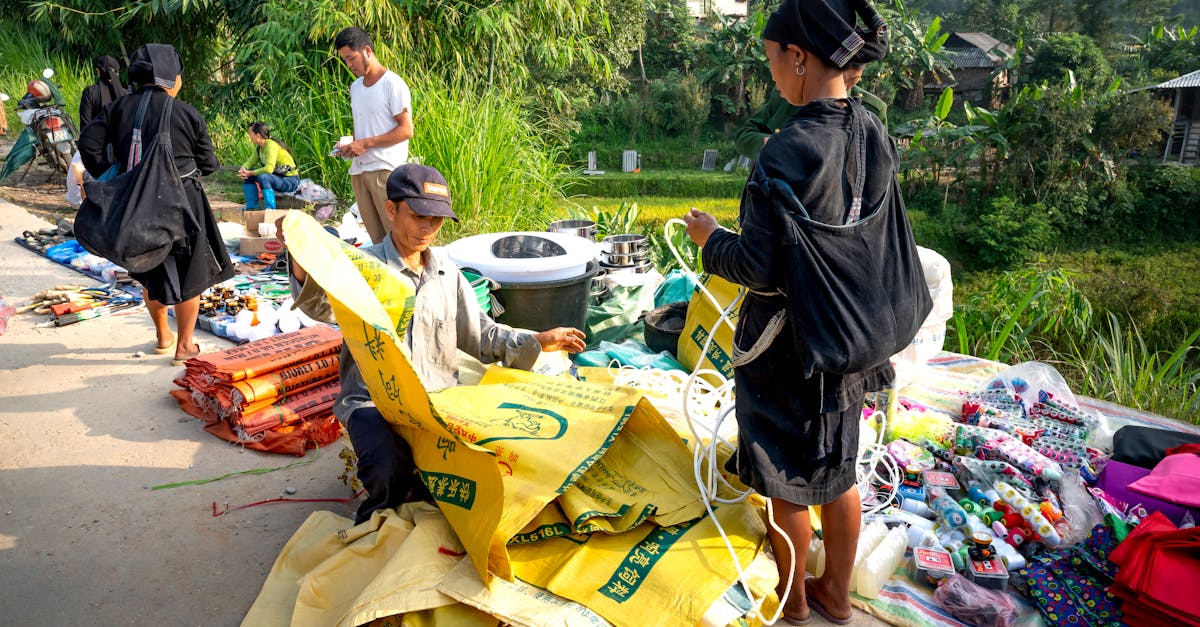Discover the untold story of South America’s Indigenous communities and their vital role in environmental conservation. Join us as we explore how these communities are the key to saving the environment in an eye-opening journey of preservation, tradition, and sustainability.
South america’s indigenous communities as stewards of the land

South America’s Indigenous communities have long been the stewards of the land, protecting and preserving their territories for generations. As the primary inhabitants of these regions, they possess a deep understanding of the environment and the importance of sustainable practices. Through their traditional knowledge and cultural values, Indigenous communities play a crucial role in environmental conservation and land management.
Indigenous Peoples: Defending an Environment for All
Indigenous Peoples’ lands are threatened by industrial development; conversion risk assessment reveals the need to prioritize the protection of these territories to prevent further environmental degradation. Their connection to the land goes beyond economic value, encompassing spiritual and cultural significance that transcends generations.
Indigenous Communities as Environmental Guardians
According to a UN report, Indigenous peoples are recognized as the best guardians of forests due to their holistic approach to conservation. Their sustainable practices have been lauded globally as a model for environmental preservation. Through community-based initiatives, they demonstrate the harmonious coexistence between humans and nature.
– Indigenous communities implement sustainable land management practices
– They promote biodiversity conservation and ecosystem health
– Traditional knowledge is passed down through oral traditions and practices
Challenges Faced by Indigenous Communities
Despite their crucial role as environmental stewards, Indigenous communities face various challenges in their efforts to protect their lands. The encroachment of industrial activities, such as mining and deforestation, poses a significant threat to their territories and traditional way of life. It is essential to address these challenges through collaborative efforts and respect for Indigenous rights.
– Encroachment of industrial activities on Indigenous territories
– Loss of biodiversity due to deforestation and resource extraction
– Lack of recognition and protection of Indigenous land rights
Urgency for Sustainable Practices
The recent oil spill in California and unrest in Costa Rica’s forests highlight the urgent need for sustainable practices and the involvement of Indigenous communities in environmental decision-making. By recognizing the wisdom and traditional knowledge of Indigenous peoples, we can work towards a more sustainable future for all.
– Urgent need for sustainable practices in light of environmental crises
– Involvement of Indigenous communities crucial for effective environmental management
– Recognition of Indigenous rights essential for environmental justice
In conclusion, South America’s Indigenous communities stand as the guardians of the land, embodying a deep respect for nature and a commitment to sustainable practices. Their role as environmental stewards is not only essential for the preservation of biodiversity but also for the well-being of present and future generations. By supporting Indigenous rights and embracing their traditional knowledge, we can work together towards a harmonious relationship with the environment.
the traditional ecological knowledge of indigenous peoples

What We Lose When We Lose Indigenous Knowledge
Preserving Traditional Ecological Knowledge (TEK) within Indigenous Communities is crucial for maintaining ecosystems’ balance and biodiversity. When Indigenous knowledge is lost, so is the wisdom accumulated over generations on how to interact sustainably with the environment. This loss can have detrimental effects on nature, impacting not only local communities but also global conservation efforts.
Tapping into Indigenous Knowledge to Protect Nature
Engaging with Indigenous communities to tap into their Traditional Ecological Knowledge offers valuable insights into sustainable practices that can benefit environmental conservation. By integrating Indigenous wisdom into conservation strategies, we can enhance biodiversity protection, land management, and resilience to environmental changes.
Communication and Evolving Trends in Indigenous Languages
The transmission of Traditional Ecological Knowledge heavily relies on effective communication within Indigenous communities. As languages evolve and face the risk of disappearing, efforts must be made to preserve these linguistic treasures that hold valuable information about sustainable practices and ecosystem management.
Ethiopia’s Largest Community Conservation Area Brings Indigenous Communities into the Fold
Initiatives like Ethiopia’s large community conservation area demonstrate the importance of involving Indigenous communities in conservation efforts. By recognizing and incorporating Traditional Ecological Knowledge, these projects can create more effective and sustainable approaches to preserve biodiversity and protect natural resources.
Dealing with Risks Associated with Tsunamis Using Indigenous Knowledge Approaches
In facing natural disasters like tsunamis, leveraging Indigenous Knowledge is essential for developing early warning systems and disaster response strategies. Indigenous communities’ traditional practices and observations can provide valuable insights into mitigating risks and ensuring the safety of both people and ecosystems.
FAO – News Article: Indigenous Intergenerational Knowledge Exchange for Food Security at the CFS44
The exchange of Traditional Ecological Knowledge across generations plays a vital role in ensuring food security and sustainable agriculture. Platforms like the Committee on World Food Security facilitate intergenerational knowledge sharing, highlighting the importance of Indigenous wisdom in addressing food-related challenges.
‘Landmark’ Indigenous Knowledge Collaboration
Collaborative projects that bridge Indigenous knowledge with scientific research are key to preserving Traditional Ecological Knowledge. Such partnerships can enhance conservation efforts, promote cultural heritage preservation, and foster a deeper understanding of the intricate relationship between Indigenous communities and their environment.
Indigenous Food Harvesting Techniques Help Preserve the Land for Future Generations
Indigenous food harvesting techniques not only sustainably provide sustenance but also contribute to land preservation. By honoring and perpetuating these traditional methods, Indigenous communities safeguard the environment for future generations, emphasizing the importance of respecting nature’s cycles and resources.
The Giving Trees: Celebrating the Reciprocal Relationship between Forests and Local Communities
Forests hold immense cultural and ecological significance for Indigenous communities, embodying a reciprocal relationship of care and respect. By recognizing this interconnectedness and valuing Traditional Ecological Knowledge, we can promote sustainable forest management practices that benefit both local communities and the environment they depend on.
the role of indigenous communities in conservation efforts

indigenous-led conservation initiatives
Indigenous communities are at the forefront of conservation efforts in various regions across the globe. Their deep-rooted connection to the land and traditional knowledge make them invaluable partners in preserving biodiversity and promoting sustainable practices. Organizations such as WWF and the United Nations recognize the significance of working hand in hand with indigenous peoples to achieve a fairer and greener future for all.
preserving traditional knowledge
One crucial aspect of involving Indigenous communities in conservation is the preservation of traditional knowledge. Indigenous peoples hold a wealth of knowledge about local ecosystems, plant species, and wildlife behavior that has been passed down through generations. By integrating this knowledge into conservation strategies, we can enhance our understanding of the environment and develop more effective protection measures.
uplifting indigenous voices
Archana Soreng, a young Indigenous climate activist from India, emphasizes the importance of uplifting Indigenous voices in conservation discussions. She advocates for integrating Indigenous perspectives into policy-making processes to ensure that their rights and wisdom are respected. By empowering Indigenous communities to lead conservation initiatives, we can foster a more inclusive and sustainable approach to environmental protection.
challenges and opportunities
While Indigenous-led conservation efforts have shown promising results, challenges remain. Issues such as the displacement of Indigenous peoples for conservation projects highlight the complexities of balancing environmental preservation and social justice. It is essential to prioritize the rights and well-being of Indigenous communities in conservation decision-making to avoid adverse impacts on their livelihoods.
In conclusion, the vital role of Indigenous communities in conservation efforts cannot be understated. By recognizing and supporting Indigenous-led initiatives, we can strengthen conservation outcomes, promote cultural diversity, and achieve a more sustainable future for all.
challenges faced by indigenous communities in protecting the environment

Indigenous communities around the world play a vital role in protecting the environment, often acting as stewards of the land and crucial pillars of conservation efforts. However, these communities face numerous challenges in safeguarding their territories and the planet at large.
Historical Dispossession and Exclusion
Historical dispossession and exclusion of Indigenous peoples from their lands have severely limited their ability to protect their environment effectively. Throughout history, Indigenous communities have been forcibly removed from their traditional territories, leading to a loss of ancestral knowledge and practices crucial for environmental stewardship.
Lack of Recognition and Respect
Lack of recognition and respect for Indigenous rights and traditional knowledge poses a significant challenge in environmental protection. Governments and corporations often overlook or disregard Indigenous voices, undermining their role as custodians of the environment.
Resource Exploitation and Pollution
Resource exploitation and pollution threaten Indigenous lands and resources, exacerbating environmental degradation. Industries such as mining, logging, and agriculture encroach upon Indigenous territories, leading to deforestation, water pollution, and habitat destruction.
Climate Change Impacts
Climate change impacts disproportionately affect Indigenous communities, disrupting their traditional ways of life and increasing the vulnerability of their environment. Rising temperatures, extreme weather events, and sea-level rise threaten the livelihoods and cultural heritage of Indigenous peoples.
Legal and Political Barriers
Legal and political barriers inhibit Indigenous communities from effectively protecting their environment. Inadequate legal frameworks, institutional discrimination, and lack of political representation hinder Indigenous efforts to defend their lands and resources.
Empowerment and Advocacy
Despite these challenges, Indigenous communities are actively advocating for their rights and promoting sustainable environmental practices. Through empowerment initiatives, advocacy campaigns, and collaborations with non-governmental organizations, Indigenous peoples are amplifying their voices in environmental conservation.
In conclusion, addressing the challenges faced by Indigenous communities in protecting the environment requires upholding their rights, recognizing their knowledge, and fostering inclusive partnerships for sustainable solutions. By centering Indigenous perspectives and empowering these communities, we can work towards a more equitable and environmentally sustainable future for all.
supporting indigenous communities in sustainable land management

In our global push towards sustainable development and environmental conservation, supporting Indigenous communities has emerged as a crucial component in ensuring the responsible management of our natural resources. From fighting for land rights to implementing community-based forestry practices, Indigenous groups play a vital role in preserving biodiversity and combating climate change.
Protecting Forests and Improving Livelihoods in Indonesia
In Indonesia, initiatives that combine forest conservation with economic opportunities for Indigenous peoples have shown promising results. By granting land rights to local communities, not only are forests protected from deforestation but livelihoods are also improved through sustainable practices like agroforestry and eco-tourism.
First Nations Organisations Fighting for Climate Justice
In Canada, First Nations organizations are at the forefront of the climate justice movement, advocating for policies that prioritize Indigenous knowledge and rights in environmental decision-making. By partnering with these groups, governments can leverage their traditional ecological knowledge to develop effective climate action plans.
Indigenous Land Rights – A Critical Pillar of Climate Action
The recognition of Indigenous land rights is fundamental to addressing climate change. When Indigenous communities have secure land tenure, they act as stewards of the environment, implementing sustainable land management practices that benefit both biodiversity conservation and carbon sequestration.
Community Forestry and Reducing Corruption: Perspectives from the Peruvian Amazon
In the Peruvian Amazon, community forestry initiatives have not only empowered Indigenous groups but have also served as a mechanism to combat corruption in the logging industry. By giving local communities ownership over forest resources, the risk of illegal logging is reduced, leading to more sustainable land management practices.
In Ecuador, Learning about Land Degradation Neutrality in Practice
Ecuador’s efforts towards achieving Land Degradation Neutrality involve working closely with Indigenous communities to restore degraded lands and promote sustainable agriculture. By involving local knowledge and practices, the country is setting a model for how sustainable land management can benefit both people and the planet.
Why Protecting Indigenous Communities Can Also Help Save the Earth
The protection of Indigenous communities goes hand in hand with environmental conservation. By safeguarding their land rights and promoting sustainable practices, we not only preserve unique cultural heritages but also contribute to global efforts in mitigating climate change and biodiversity loss.
Community Approaches to Sustainable Land Management and Agroecology Practices – World
Embracing community-based approaches to sustainable land management and agroecology is key to ensuring long-term environmental success. By supporting Indigenous practices that are deeply rooted in harmony with nature, we can promote resilient ecosystems and secure livelihoods for future generations.
5 Conservation Projects Focused on Long-Term Success
1. Implementing community-led conservation initiatives in partnership with Indigenous groups.
2. Investing in sustainable agroecology practices to enhance food security and biodiversity conservation.
3. Securing land rights for Indigenous communities to protect forests and combat deforestation.
4. Promoting eco-tourism ventures that benefit local economies and preserve natural habitats.
5. Integrating Indigenous knowledge into policy-making processes for effective environmental governance.
Commonwealth Adopts Historic Living Lands Charter | Commonwealth
The adoption of the Living Lands Charter by the Commonwealth highlights a global commitment to supporting Indigenous communities in sustainable land management. By recognizing the importance of traditional land stewardship practices, countries are taking a significant step towards promoting environmental sustainability and social justice.
Indigenomics: Our Eyes on the Land
The concept of Indigenomics emphasizes the economic value of Indigenous knowledge and land management practices. By valuing the contributions of Indigenous communities to sustainable development, we not only honor their cultural heritage but also harness their expertise in preserving our natural resources for future generations.
